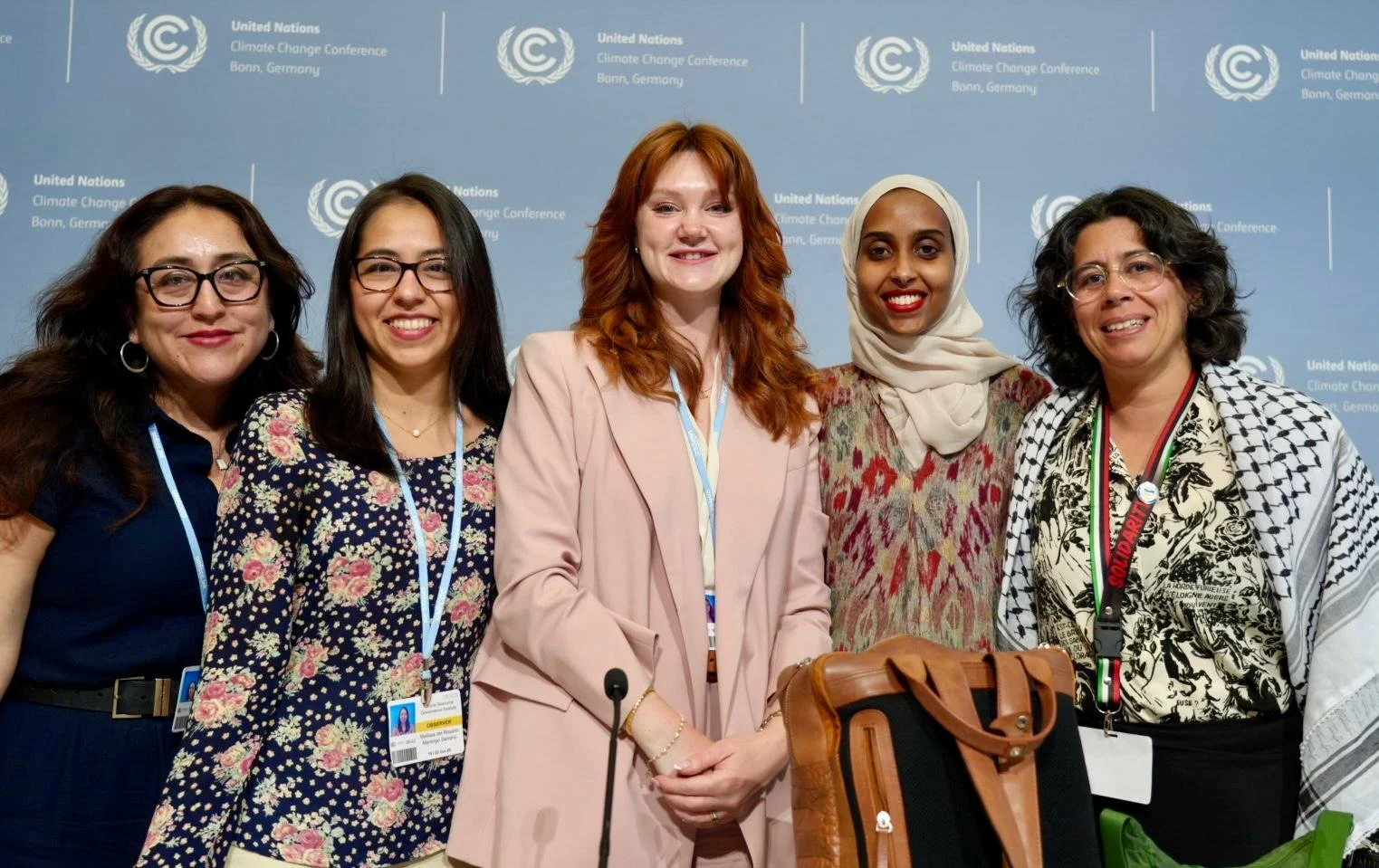ON CRITICAL MINERALS, TIME IS RIPE TO DELIVER BOTH THE METALS AND THE MANDATES
In these opening remarks at a press briefing on critical minerals during the ongoing SB62 climate negotiations in Bonn, Germany, Power Shift Africa’s Samira Ally argues that Africa’s mineral wealth can accelerate the global shift to net-zero, but only if it is governed for stability, justice and shared prosperity.
As negotiators meet here in Bonn for SB62, the world’s clean-energy ambitions are running into a hard resource reality: the minerals that power the transition are neither limitless nor are they making tangible livelihood improvements to those who need them the most in the Global South.
This very morning, in the fourth letter to the international community, the Brazilian incoming Presidency reminded us that the world needs to triple renewable energy capacity globally, doubling the global average annual rate of energy efficiency improvements by 2030, and transitioning away from fossil fuels in energy systems. The failure or success of this all relies on critical energy transition minerals and how they are utilized.
Nowhere is the tension between opportunity and risk clearer than in Africa. The continent hosts most of the world’s platinum reserves, 70% of global cobalt production in the Democratic Republic of Congo and Zambia, bauxite in Guinea, and manganese in Mozambique, to mention a few.
Recent analysis by Global Witness recorded 334 separate incidents of violence or protest at cobalt, copper, lithium and nickel mines between 2021 and 2023, nearly 90% of them in emerging economies, many of them African. In Kolwezi, DRC, entire neighborhoods have been razed or forcibly displaced to clear land for industrial cobalt pits, triggering litigation and stalling expansions. And in Bikita, Zimbabwe’s lithium belt offers another cautionary tale: the continued export of raw materials have left communities questioning international investment and demanding the local jobs and industries that were promised.
Such episodes delay projects, drive up capital costs and shake community support, exactly the opposite of what a rapid, orderly and just transition requires.
The solution starts before the first drill bit touches the ground. The World Bank’s Climate-Smart Mining Initiative shows that rigorous environmental, climate and cultural impact assessments, conducted early and transparently, cut permitting times and reduce the risk of future litigation.
For African states, these assessments are not a bureaucratic hurdle; they are a development safeguard. They protect water tables in the Copperbelt, carbon-rich peatlands in the Congo Basin, and the cultural heritage of Indigenous peoples’ natural and social capital on which long-term prosperity depends.
Communities support projects when they see tangible gains. The African Union’s Green Minerals Strategy adopted in March makes value addition at source, local content and gender-equitable benefit-sharing explicit continental priorities. Independent research across Ghana, Kenya, Sierra Leone and South Africa confirms that properly designed community benefit agreements raise “social licence” scores and cut disruption costs for operators. Put simply: jobs, transparently managed royalties, and downstream processing on African soil are cheaper than roadblocks, court injunctions and reputational damage.
SB62 is not just a technical meeting; it is the last staging post before COP30 in Belém, where Parties will decide whether the transition minerals question enters the formal climate regime. It is therefore crucial that what comes out of Bonn is aligned with other global actions. In the G20 process over the last three years, Indonesia, India, and Brazil, three of the largest economies in the Global South, have each used their recent presidencies to spotlight the role of these minerals in enabling a just and sustainable transition. This year the G20, led by South Africa and the Africa Union, is pushing for a Critical Minerals Framework that aims to provide equity control, quality technology transfer and value addition for producer countries. The Africa Climate Summit is structuring green industrialization initiatives to ensure that the policy framework and vision needed for a just transition for Africa and the world exist where the minerals are found. African delegations have already underlined, in this week’s side events and in some negotiations, that without such guard-rails the transition risks repeating the injustices of the fossil era.
We therefore welcome the UN Secretary-General’s Panel on Critical Energy Transition Minerals and its call for a High-Level Expert Advisory Group to embed seven principles, among them FPIC, no-go zones, equitable benefit-sharing, into global governance.
Our asks to Parties this week are:
Integrate minerals language from G20 and the UN Panel on Critical Minerals into SB62 conclusions, mandating that future NDCs and NAPs reference sustainable supply chains and the right to development and industrialization in the Global South.
Signal political backing for the High-Level Expert Group, ensuring it is fully inclusive of Indigenous communities and African producer countries.
Invite the Standing Committee on Finance to assess funding needs for front-loaded impact assessments and community benefit agreements in low-income producer states.
Africa’s mineral wealth can accelerate the global shift to net-zero, but only if it is governed for stability, justice and shared prosperity. Weak governance, social unrest and litigation are not inevitable, they are policy choices.
By front-loading rigorous impact assessments and committing to real benefit-sharing, Parties can turn potential flashpoints into pillars of supply security, delivering both the metals and the mandates that the Paris Agreement demands.
Thank you.

